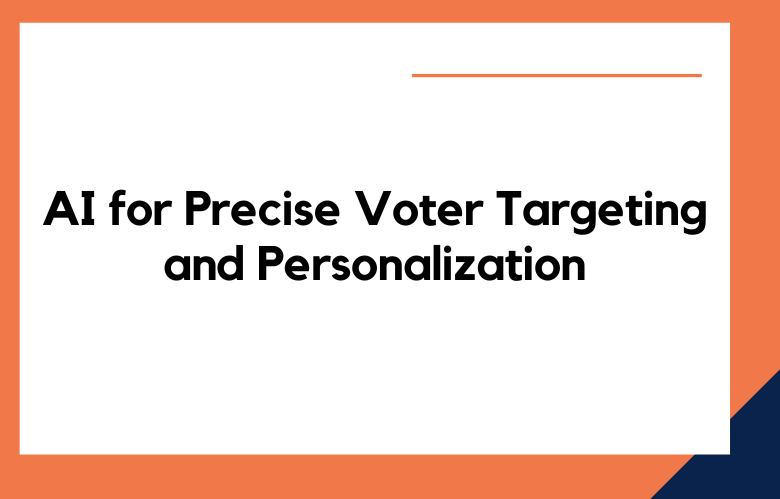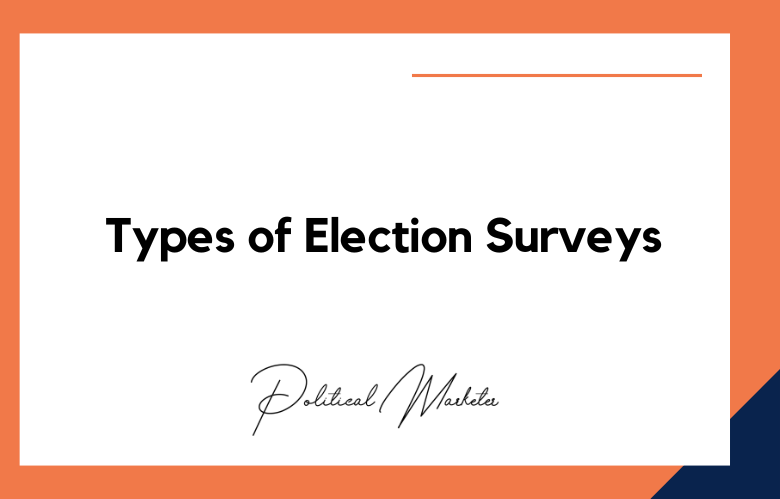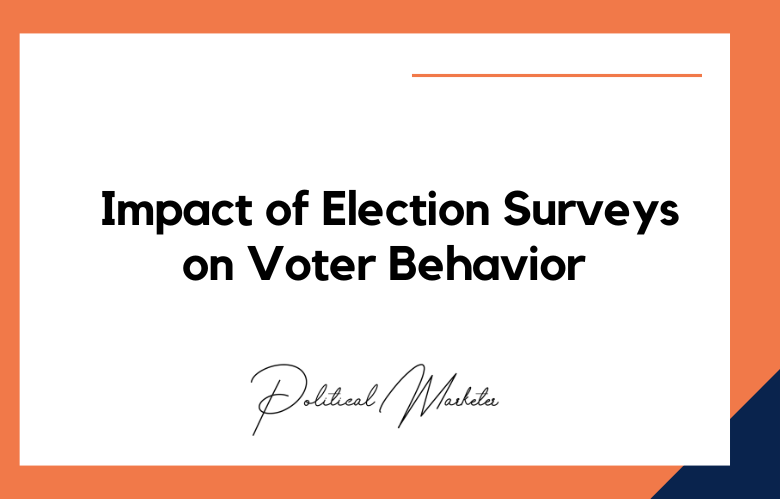In recent years, election campaigns have undergone a complete digital transformation. With the emergence of social media and big data analytics, campaigns have access to a vast amount of user data that can be used to modify their message and persuade voters.
However, movements often need help with the challenge of creating personalized messages that resonate with individual voters. Here, AI comes in as a savior.
AI can help campaigns parse the mountains of voter data available and precisely target and personalize messages. We’ll explore how AI-powered election campaigns transform political ads, cutting through the noise of traditional advertising.
Unlocking the Power of AI: Voter Profiling and Personalization
As we enter an era where data-driven decision-making dominates every sphere of life, political campaigns are no exception.
The rise of artificial intelligence (AI) has paved the way for the creation of personalized and targeted messages to reach out to potential voters. Voter profiling collects and analyzes data about individuals to understand their behavior and preferences, giving political parties an edge regarding messaging and campaign strategy.
AI has been a game-changer when it comes to voter profiling. Using AI algorithms, political campaigns can analyze vast data sources, including social media, demographic data, and voting records.
The technology can identify patterns in voter behavior and preferences that can provide insights into what messaging will be most effective in persuading voters to support a candidate.
How AI is Revolutionizing Voter Targeting Strategies
Artificial Intelligence (AI) rapidly changes every aspect of the business and political world, and voter targeting strategies are no exception. The ability to process vast amounts of data quickly and accurately is a significant benefit of using AI in voter targeting strategies.
With AI, campaigns can better understand voter demographics, opinions, and behaviors, resulting in more precise targeting of messages and a higher probability of converting potential voters into supporters.
One of the main advantages of using AI in voter targeting is that it can analyze large data sets that are too complex for humans to process.
Machine learning algorithms can scan through massive data repositories, such as voter databases, social media profiles, and search engine histories, to identify correlations, patterns, and relationships that would otherwise go unnoticed.
AI can even factor in variables such as voting history, political party affiliation, and demographics to suggest the most effective messaging strategy for a particular voter.
Precision Politics: The Role of AI in Voter Microtargeting
Precision politics is a term used to describe the modern method of campaigning that relies on advanced technology and data analytics to reach out to voters. In the current age of information overload and hyper-targeted advertising, political campaigns must find new ways to stand out and make an impact. This is where AI comes in.
AI or Artificial Intelligence refers to the ability of machines to process information and make decisions independent of human intervention. The use of AI in politics has been growing steadily over the past few years, with campaigns using it to develop sophisticated microtargeting strategies that can accurately predict the behavior of voters.
Voter microtargeting involves data analytics to gather information about individual voters and create tailored messages likely to resonate with them. By understanding voter demographics, voting history, social media engagement, and other factors, campaigns can create personalized campaigns that are more likely to motivate people to take action.
AI: The Game Changer in Precise Voter Targeting
Artificial Intelligence (AI) has recently become a game-changer in voter targeting. As political campaigns become increasingly sophisticated in their efforts to sway the electorate, AI-powered voter targeting has become all the more critical.
Rather than relying on the traditional, scatter-shot approach to campaign messaging, AI enables campaign strategists to analyze voter demographics and preferences on a granular level and to tailor messages to specific groups of voters accordingly.
One key advantage of AI-powered voter targeting is that it allows campaigns to reach voters in much more nuanced ways than ever before. Rather than relying on broad-based advertising and outreach efforts, campaigns can now use AI to identify an individual voter’s social media activity, browsing history, and other data points to create highly targeted ad campaigns.
This, in turn, enables campaigns to deliver their messages to audiences that are much more likely to be receptive to them and do so in a much less intrusive way than traditional, broadcast-based models.
Democratizing Politics with AI-driven Voter Personalization
Democratizing politics with the help of AI-driven voter personalization is a promising approach that is gaining significant attention and traction worldwide. The idea is to empower voters with personalized and relevant information about candidates, policies, and track records using advanced AI algorithms and mainstream communication channels.
One of the significant benefits of this approach is that it can help overcome many of the current challenges faced by traditional political campaigning and electoral tactics.
With so much information available online, voters often need help navigating through the maze of conflicting opinions and propaganda, leading to voter apathy and frustration. By providing personalized, relevant, and unbiased information, AI-driven voter personalization can help improve voter engagement and encourage informed voting.
Targeting New Voters
AI technology can help political campaigns target younger voters who typically do not watch traditional news or read newspapers. Using AI technologies, campaigns can go beyond TV and other traditional sources and advertise directly to younger people using platforms like Facebook, Snapchat, Twitter, Instagram, and YouTube.
By targeting people who use these platforms frequently and analyzing social media data in real time, a campaign can craft an ad campaign with talking points that resonate more effectively with millennial voters.
Personalizing messages
AI also allows election campaigns to personalize messages down to the individual voter level. Movements can use AI algorithms to collect data on individual voters and map those data points against a range of personality traits, such as extroversion, agreeableness, and emotional stability.
With that data, the campaign could craft highly personalized messages to appeal to voters based on their personality profiles. The results can be dazzling, with a high degree of personalization, engagement, and voter turnout.
Enhanced Message Optimization
Another advantage of Artificial Intelligence is that it can quickly evaluate and tweak messages to make them more effective. AI algorithms can analyze ad campaigns, surveys, and voter data to ensure the messaging is on target and optimize the ad campaigns based on those results.
Rather than wait for weeks or even months for a human to evaluate an ad campaign’s effectiveness, AI can help improve the campaign’s performance in real-time.
Predictive Modeling
Campaigns must use predictive models to get the level of personalization required for effective voter targeting. Predictive models help campaigns identify potential new supporters and target voters most susceptible to campaign messaging.
A campaign can create a robust voter targeting strategy and win over crucial voter segments by creating a predictive model focusing on voters likely to switch parties or those who have not voted before.
Increased Voter Engagement and Turnout
The holy grail of all campaigns, irrespective of their nature, is turning out the highest voter count. AI-powered movements can aid in increasing voter engagement and turnout.
AI-powered information collection and analysis can help campaigns get a clear understanding of the issues affecting the individual constituents of an area.
This information enables movements to craft a message that appeals to the constituent’s interests. The more customized messaging is, the higher the likelihood of increased voter engagement and turnout.
Conclusion:
AI is set to revolutionize elections, and we are pretty close to seeing more AI-powered campaigns each year. With access to vast data streams and the power of machine learning, AI can help campaigns better understand individuals and craft more personalized messaging.
The results of such campaigns underscore the importance of utilizing AI solutions for political campaigning and creating tailored messages to voters on a large scale. With this solution, political campaigns level their game and reach out to voters more effectively, ultimately driving considerable changes in election dynamics.
Call: +91 9848321284
Email: [email protected]










